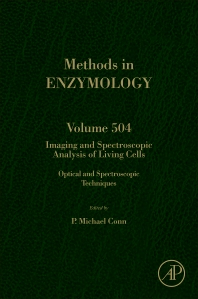Books in Life sciences
Books in Life sciences
Elsevier's Life Sciences collection helps researchers get comprehensive coverage and up-to-date information on the study of living organisms, their processes, and interrelationships, spanning disciplines like biology, genetics, and biochemistry, and addressing emerging trends such as genomics, biotechnology, and sustainability, essential for advancing knowledge and driving innovation in the field.
- 4th Edition
- September 28, 2013
- Richard E. Jones + 1 more
- English
- Hardback9 7 8 0 1 2 3 8 2 1 8 4 3
- eBook9 7 8 0 1 2 3 8 2 1 8 5 0

Human Reproductive Biology
- 1st Edition
- August 31, 2013
- Palmiro Poltronieri + 2 more
- English
- Hardback9 7 8 1 9 0 7 5 6 8 2 9 9
- Paperback9 7 8 0 0 8 1 0 1 5 3 6 0
- eBook9 7 8 1 9 0 8 8 1 8 4 7 8

From Plant Genomics to Plant Biotechnology
- 1st Edition
- October 31, 2013
- Rosario Pignatello
- English
- Hardback9 7 8 1 9 0 7 5 6 8 0 5 3
- eBook9 7 8 1 9 0 8 8 1 8 3 4 8

Drug-Biomembrane Interaction Studies
- 1st Edition
- March 26, 2013
- K. Shimizu
- English
- Hardback9 7 8 1 9 0 7 5 6 8 0 1 5
- eBook9 7 8 1 9 0 8 8 1 8 2 0 1

Bacterial Cellular Metabolic Systems
- 1st Edition
- April 9, 2013
- Paola Lecca + 2 more
- English
- Hardback9 7 8 1 9 0 7 5 6 8 6 2 6
- eBook9 7 8 1 9 0 8 8 1 8 2 1 8

Deterministic Versus Stochastic Modelling in Biochemistry and Systems Biology
- 1st Edition
- Volume 98
- February 10, 2012
- English
- Hardback9 7 8 0 1 2 3 8 6 4 9 9 4
- eBook9 7 8 0 1 2 3 8 6 5 0 0 7

Transcriptional Switches During Development
- 1st Edition
- Volume 504
- January 24, 2012
- English
- Hardback9 7 8 0 1 2 3 9 1 8 5 7 4
- eBook9 7 8 0 1 2 3 9 1 8 6 9 7

Imaging and Spectroscopic Analysis of Living Cells
- 1st Edition
- Volume 119
- December 2, 2012
- English
- Hardback9 7 8 0 1 2 4 0 7 1 9 0 2
- eBook9 7 8 0 1 2 4 0 7 2 1 1 4

Advances in Cancer Research
- 1st Edition
- Volume 100
- March 30, 2012
- English
- Hardback9 7 8 0 1 2 3 8 7 7 8 6 4
- eBook9 7 8 0 1 2 3 8 7 7 9 0 1

Heart Development
- 1st Edition
- Volume 108
- February 16, 2012
- English
- Hardback9 7 8 0 1 2 3 8 6 4 8 7 1
- eBook9 7 8 0 1 2 3 8 6 4 8 8 8

Lipids